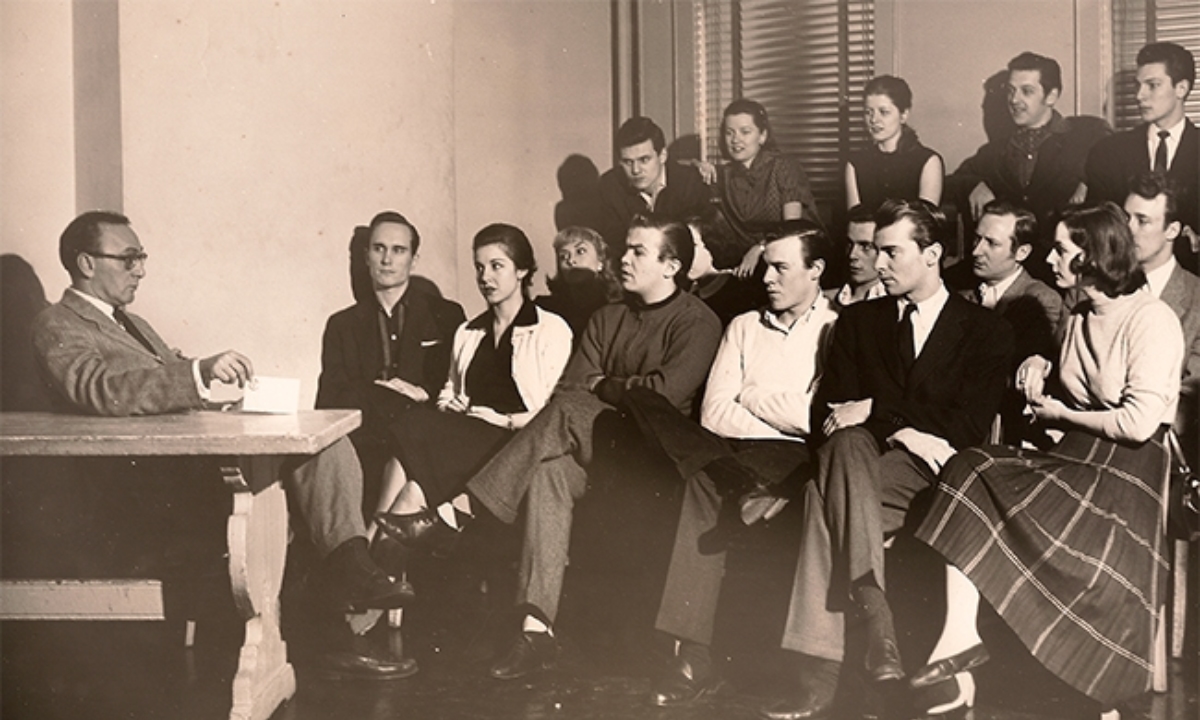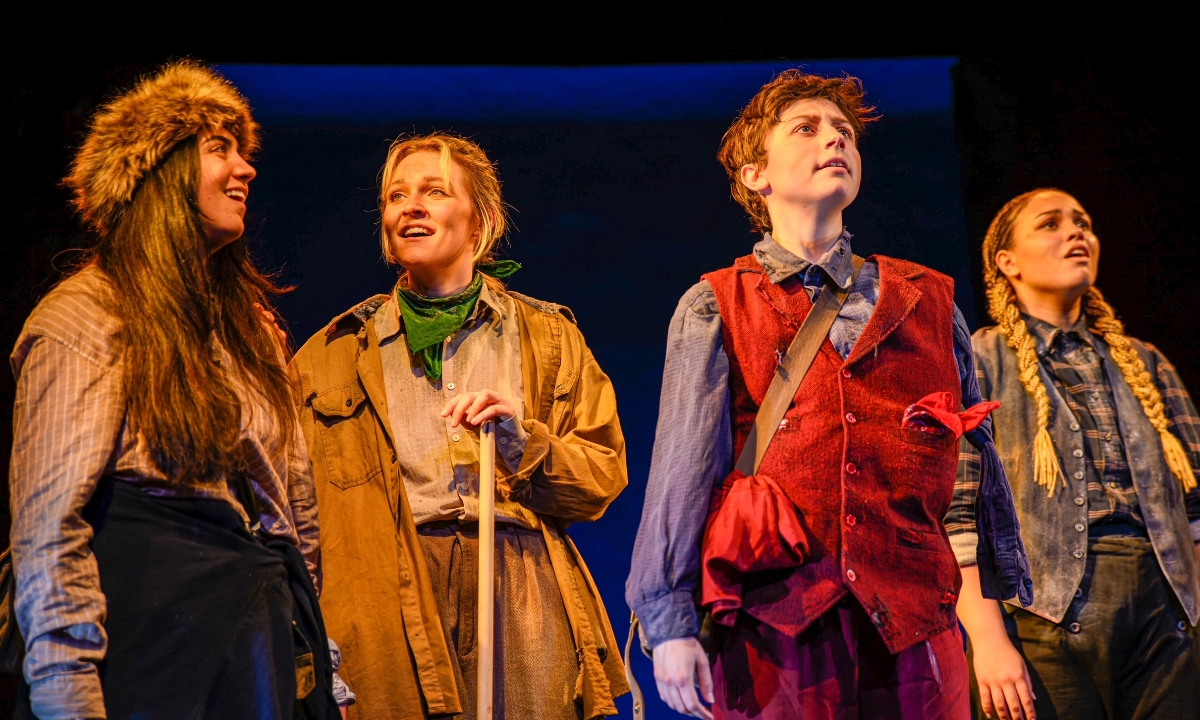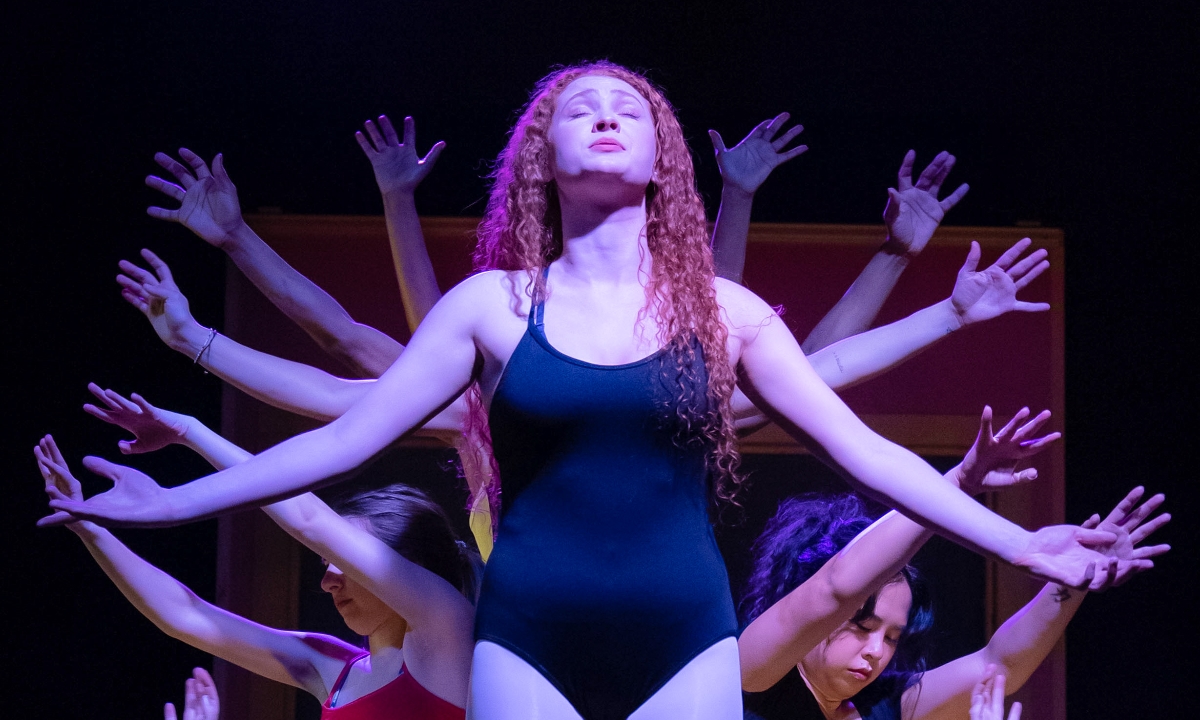The First Year Professional Acting Program
The first year is devoted to developing the actor’s instrument through both improvisational and text-based work. Students take courses in Meisner Technique fundamentals, vocal work, and movement, as well as an academic course in contemporary theater history and coursework in technical theater skills. Over the first year, technique is emphasized as misconceptions and habits are shed. The actor emerges a more honest human being, ready to act truthfully.
“Acting is the ability to live truthfully under imaginary circumstances.”
~ Sanford Meisner
First Year Courses:
Curriculum: First Year
Total Length: 32 Weeks | Full-Time (approximately 30hrs/week)
Meisner Acting Techniques I (12hrs/week)
Students are taught through a system of exercises developed by Sanford Meisner here at The Neighborhood Playhouse including: improvisation, repetition, independent activity, and scene work. The work is designed to develop the actor’s concentration and strengthen the actor’s instrument to be both responsive and expressive within the imaginary circumstances. The technique creates a more specific, skilled, and authentic actor with an organic, spontaneous, and disciplined instrument.
Acting Lab (Drills) (1.5hrs/week )
Second Year teachers and senior faculty work with students weekly to oversee each individual students progression throughout the year.
theatre history I: theory and theatre (1.5hrs/week)
An overview of important developments in theatre production and performance which impacted modern American acting through the reading of plays and essays. From Aristotle to Odets, Behn to Nottage this course will give students an opportunity to start looking at theatre through a critical lens. Our Irene Lewisohn Library contains an extensive collection of dramatic works, anthologies, and theatre history books— important resources for our actors in training.
Modern Dance I (3hrs/week)
Legendary Martha Graham’s work at The Neighborhood Playhouse continues as a vital component of the curriculum today. Unique to The Neighborhood Playhouse, this movement art form provides training in contemporary movement to prepare the body as a dramatic instrument, with emphasis on focus and the awareness of the body’s center.
Music I / Singing Technique I (4hrs/week)
The study of singing technique with specific concern for the special requirements of the actor, including relaxation, preparation, musical voice production and introduction to interpretation of songs.
Jazz dance I (4 hrs/week)
Training in movement and techniques applicable to contemporary musical theatre. Emphasis on learning the basic vocabulary and choreography of giants in this American movement style including Bob Fosse, Michael Bennett, and Agnes de Mille.
Shakespeare I (2hrs/week)
Studying a range of plays, students learn to close read early modern text and analyze the distinctive qualities of Shakespeare’s language and demands of performance. The nature of Elizabethan and early Jacobean stages, style as well as historical productions and key figures in Shakespeare and the classical tradition are studied, leading to a knowledge of the history of Shakespeare in performance and how he has been interpreted on stage and screen through succeeding generations.
Voice I and Speech I (3 hrs/week)
This class uses a number of techniques, including Alexander, and focuses on developing an expressive, flexible, and resonant voice with stamina and range. Students are instructed in the phonetic alphabet and diction with the goal of mastering Standard American Speech and eliminating any regional or foreign accent. The goal is for each student to develop a neutral, organic voice for theatre, film, and television.
alexander technique I (2 HRS/WEEK).
Group and individual training in the essentials of the Alexander Technique, with special attention to problems of posture, relaxation, and preparation as it relates to the actor.
physical theatre I (1.5 HRS/WEEK)
This course explores the basics of the practice and practical application of Jacques Lecoq’s performance theory and techniques. Beginning with a systematic introduction to Lecoq’s movement training, students are taken through practical exercises and improvisations designed to investigate Lecoq’s collaborative and physical approaches to the chorus (developing ensemble and presence onstage), “Le Jeu” (the in-the-moment interplay between actors that keeps performance alive and compelling), Mimodynamics (observing and understanding dynamic movement structures in the world in order to create truthful characters and dynamics onstage).
stage combat I (1.5 HRS/WEEK)
Students are introduced to the foundational principles of stage combat, emphasizing safety, precision, and storytelling. Training includes basic unarmed and armed techniques, coordination, and the integration of combat into performance, with focus on clear choreography and believable dramatic intent.
2026-27 First Year Tuition: $20,500 (Includes $500 Enrollment Deposit, $10,000 Fall Tuition Payment, $10,000 Spring Tuition Payment)
Prices, curriculum, curriculum hours, and faculty subject to change.


